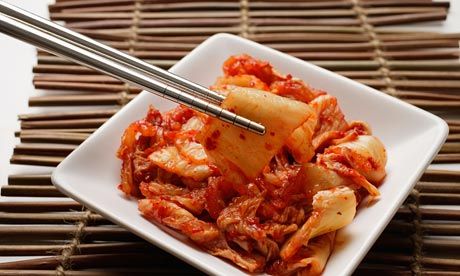
How to Increase the Absorption of Nutrients – Part 1
It is important to consume a diet full of wholefoods, quality proteins, healthy fats and fresh fruit and veggies to ensure we are nourishing and supporting our bodies as best we can. Whilst we may be doing all this, it is also essential to know that we are gaining as much as possible from the foods we consume. Just making a few simple changes to what we eat and the way we cook our food will ensure we absorb as many nutrients as possible and get as much value from the food we’ve purchased.
GUT HEALTH
Ensuring that our gut contains the right balance of good bacteria helps contribute to stronger immunity, increases absorption of nutrients and reduces digestive discomforts (such as bloating and constipation).
To increase the good bacteria in our gut I recommend adding probiotic rich foods. Probiotic foods that I like to incorporate into my diet are:
- Sauerkraut. Fermented cabbage may sound odd but believe me it makes a great addition to meat, salads, your brekkie eggs, avocado on toast or even just a side to your mail meal.
- Kimchi. Not a fan of sauerkraut? Try kimchi. Traditionally used in Korean cooking it’s fermented cabbage with spices. Both sauerkraut and kimchi are a good source of B Vitamins, minerals and fibre. I like adding Kimchi to my Asian dishes, as it adds a nice spice to it.
- Yoghurt. Easy to get your hands on, makes the perfect snack, dessert or brekkie. Go for natural, plain yoghurt and pick one that doesn’t have any added sugar (the sugar content should be no more than 5g per 100g). If it has added sugar it won’t allow the good bacteria to flourish. If you are avoiding dairy then you can try coconut yogurt.
- Kefir. Similar to yoghurt, high in lactobacilli and bifidus bacteria that help to contribute to growth of good bacteria in your gut. You can find Kefir at the farmers markets or your local health food store.
- Miso. Traditionally consumed in Japan for the benefits to gut health. I like getting the miso paste (find it at your local health food store) adding a tablespoon to hot water for an instant warming soup. Perfect for Winter!
- Kombucha. Is a fermented tea which has traditionally been made in China for thousands of years and full of probiotic goodness. Kombucha is also good for anyone that enjoys fizzy drinks or is addicted to sugar.
- Dark chocolate. Do we even need an excuse to eat dark chocolate? Not only does it contain antioxidants but also probiotic goodness. Be sure to go for 80% + cocoa.
ADD GOOD FATS TO VEGGIES
- Adding good fats to your veggies such as olive oil, cold-pressed seed or nut oils, eating avocado, nuts, seeds and cooking in butter/ghee or coconut oil helps to increase the digestion of carotenoids, antioxidants and increase the absorption of fat soluble vitamins: A, D, E and K. I like adding an olive oil, apple cider vinegar and garlic dressing to salads.
CHEW
- Sounds simple right? Chewing your food properly assists to breakdown the nutrients in your food and helps to release digestive enzymes and stomach acids that contribute to absorption of nutrients.
- Despite how hungry or busy you may be, be sure not to inhale your food. Eating too quickly and not chewing your food properly can cause your body to become stressed, slowing down the processes related to digestion. Sit down at the table, be present, slow down and chew your food.
In Part 2 of this article, we look at eating habits, drinking tea, iron absorption, and the role that bitter foods play in our diet. (You can read Part 2 here.)
Disclaimer: This article is written for information purposes only. Information included in this article is not intended to treat or cure individuals. As every individual is so unique, so too are their dietary needs and restrictions. Always seek the advice from a healthcare professional before making any changes to your lifestyle or diet.
gut health, kefir, kimchi, kombucha, miso, sauerkraut, yoghurt

